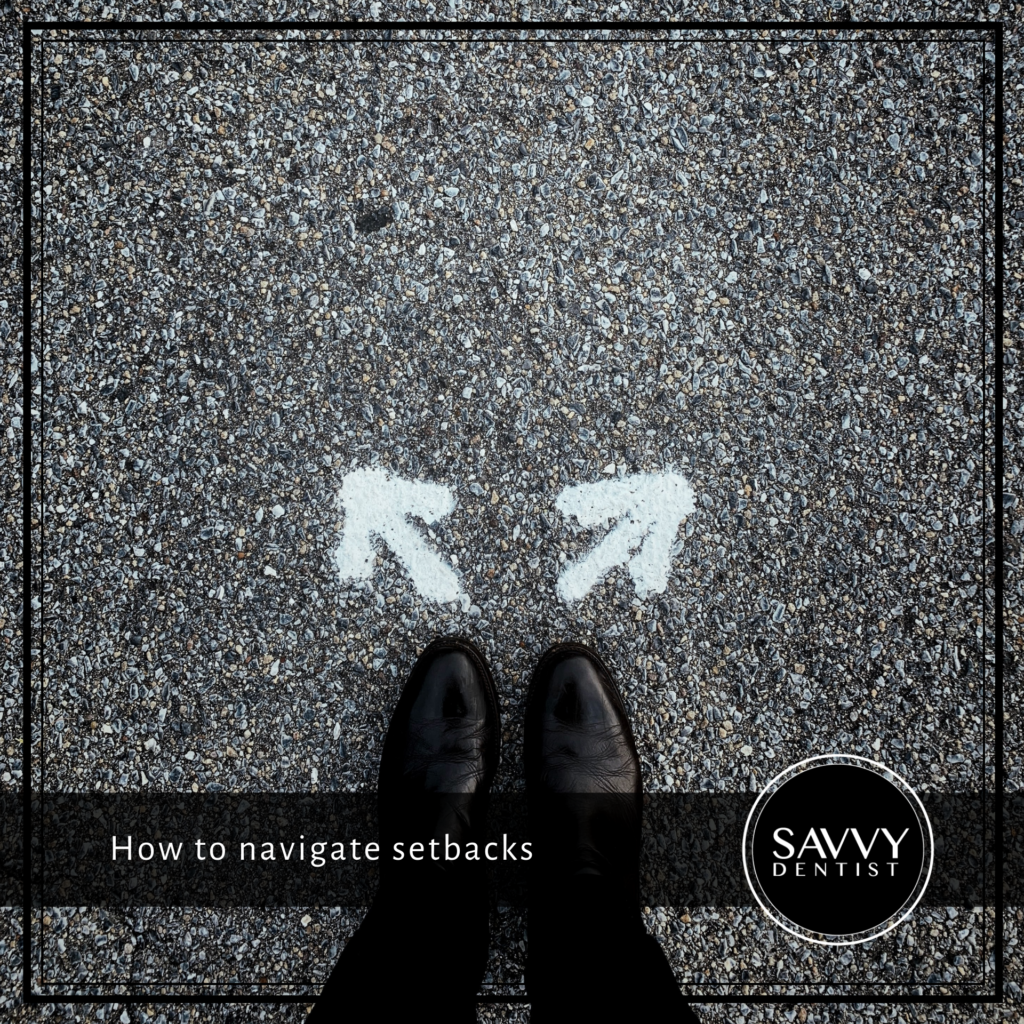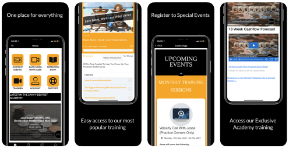Most dentists are perfectionists by nature – they’re tough on themselves, they’re trained to look for imperfections, and they have a tougher time dealing with setbacks. Intellectually, we may know that life is always going to involve detours and curveballs, but we still find it difficult to deal with at an emotional level.
So, how do we learn to deal with setbacks in grittier way?
Plan and prepare
As the saying goes, expect the unexpected. It’s important to have a planning process and risk mitigation strategies in place – especially when you’re dealing with business and financial matters.
Start by identifying potential risks, the likelihood of them occurring, how you can reduce the impact and gain control over the situation, and what the best course of action is.
Feel your feelings
If and when things don’t go as planned, it’s okay to feel disappointed. There’s nothing useful about denying yourself to process your emotions and let them run their course. Give yourself time to feel the frustration, sadness, and upset, and then move on. You can even give yourself a set amount of time, like 24 hours, to really let yourself go to that emotional place, and then keep it moving.
Get some perspective
We all have blind spots, and sometimes we need the perspective of an outsider to help us see more clearly. That’s why the best athletes, the best performers in the arts, the best performers in any endeavour, have a coach.
When Tiger Woods was at the top of his game, he had five coaches. Someone asked him why he even needed that many coaches if he was the best golfer in the game. He replied saying that he cannot see his own swing, but the coaches can.
Getting that external perspective, whether it’s from a coach, a friend, a colleague, or partner, is very important. They can help you see both the risks and benefits that you perhaps can’t.
Don’t believe everything you tell yourself
When my kids were young, we had them do some resilience training. One of the things that the resilience trainers spoke about was, this concept of detective thinking, and really asking ourselves, is that story true? Where’s the evidence to support that story? Is it just a story that we tell ourselves, or is it backed up by hard, cold facts?
Try not to get caught up in the emotional stories that you tell yourself because those stories can lead to values, and beliefs that may not serve into the future.
Look for the lessons
Setbacks and failures are often golden opportunities for learning. So, ask yourself what you can take from this experience. There’s got to be a silver lining where we take the lessons the situation presents, so we can be better prepared for the future. You might learn what to do, what not to do, or how you can mitigate risk next time.
Life is not a linear journey. Life is not one pathway. Life is full of side journeys, pitstop, setbacks, ups and downs, it’s a rollercoaster ride. But ultimately, you want to be able to take these experiences and grow from them. That’s how you achieve grit and ultimately, greatness.
P.S Want to scale your dental practice and take your profits to 7 figure success?
Me and my team can work with you directly to get you there! Simply book in your FREE 1:1
strategy session, and we can get started on a game plan for you and your practice.



